|
|
|
|
The federal budget, as Economics Editor Peter Martin observed last week, isn’t really about the mechanics of seeking parliamentary approval for spending. Rather, it is the most important policy statement the Australian government makes each year, our version of the US State of the Union address.
In light of this it’s a journalism fail to present the budget as merely a game of “what’s in it for me”. People do need to know how the budget affects them – the government banks on this and it makes the impact on families and individuals simple to report. (Following the wisdom of NSW Premier Jack Lang who said: “In the race of life, always back self-interest, at least you know it’s trying.”)
But the big picture is where the action is; where the story “us” is being written. How are we tackling our post-pandemic recovery? Climate change? What measures are there in aged care? How can we support women facing barriers in the workforce? What will the budget mean for unemployment? How do we balance investment in infrastructure with support for science and research and technological innovation? How will we support small business? Educate our population? How do we recognise and empower Indigenous Australians? What does the budget say about how Australia sees itself in the world?
Our team reporting from the budget lockup includes some of Australia’s most insightful and experienced journalists and economists, led by Michelle Grattan, Peter Martin, UNSW Economist Richard Holden and Grattan Institute CEO Danielle Wood.
Their coverage will begin with a comprehensive newsletter on budget night and over the coming weeks we will bring you analysis on the policy choices we have made from dozens of Australia’s leading academics.
We believe good decisions in politics start with good information that can inform the public debate. Our budget coverage is not just about what we’ve decided to do, but the choices that we haven’t made, and perhaps need to. That’s the sort of insight only deep expertise can bring.
As part of our commitment to informing the public, everything we publish is free to read and free to republish. That decision means we rely on your support. If you value what we do please make a donation.
|
Misha Ketchell
Editor & Executive Director
|

|
|

Dean Lewins/AAP
David Smith, University of Sydney; Katie Attwell, The University of Western Australia; Uwana Evers, The University of Western Australia
More people say they would support a vaccine mandate than say they would definitely take the vaccine themselves.
|
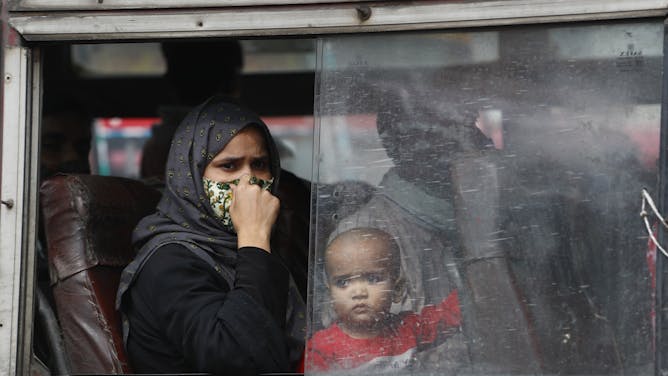
A woman and child on a bus in New Delhi.
Manish Swarup/AP/AAP
Anne Twomey, University of Sydney
There could still be another challenge on constitutional grounds, but there may not be time before the ban ends anyway.
|
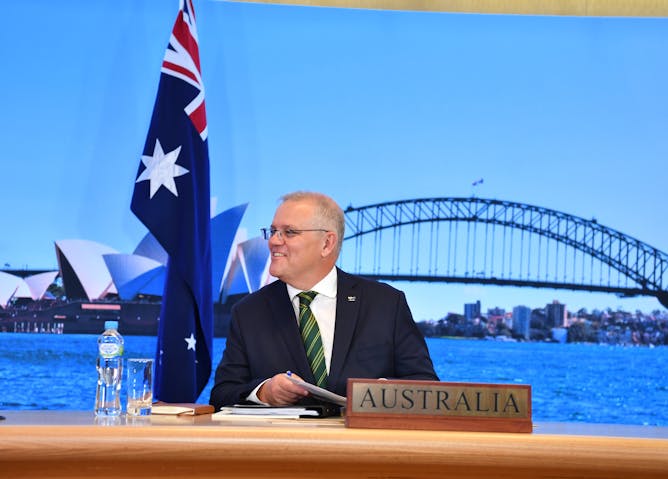
Dean Lewins/AAP
Natasha Kassam, Australian National University
Although Australians are generally supportive of closed borders, they are split on whether the pandemic has been a boon for national unity and social cohesion.
|
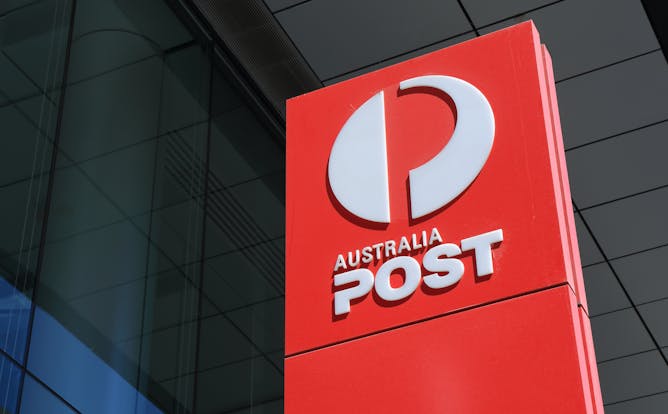
TK Kurikawa/Shutterstock
Paul Alexander, Curtin University
Christine Holgate's new job will cost Australia Post, and Australian taxpayers.
|
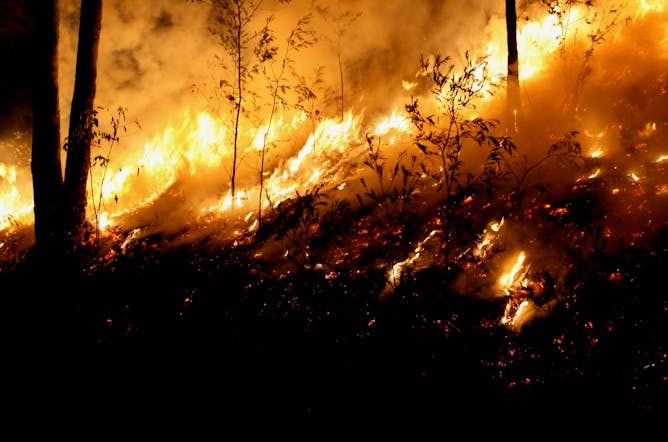
Shutterstock
David Bowman, University of Tasmania
Our research is deeply concerning because it signals there are no quick fixes to the ongoing fire crisis afflicting Australia, which is being driven by relentless climate change.
|
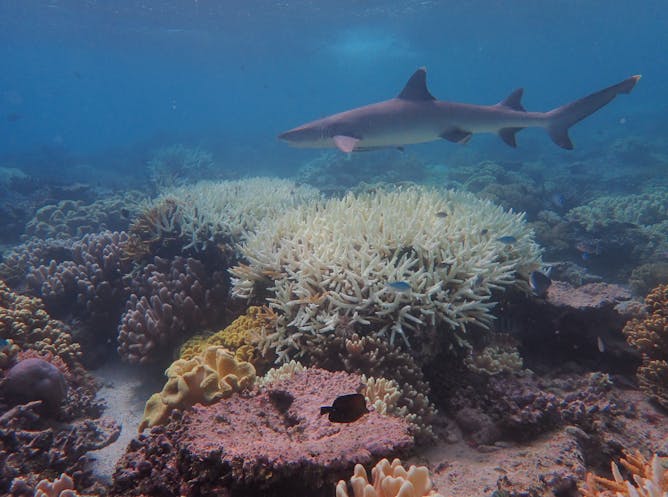
Morgan Pratchett, ARC Centre of Excellence for Coral Reef Studies
Christopher Cornwall, Te Herenga Waka — Victoria University of Wellington; Verena Schoepf, University of Amsterdam
A study of 183 coral reefs worldwide quantified the impacts of ocean warming and acidification on reef growth rates. Even under the lowest emissions scenarios, the future of reefs is not bright.
|
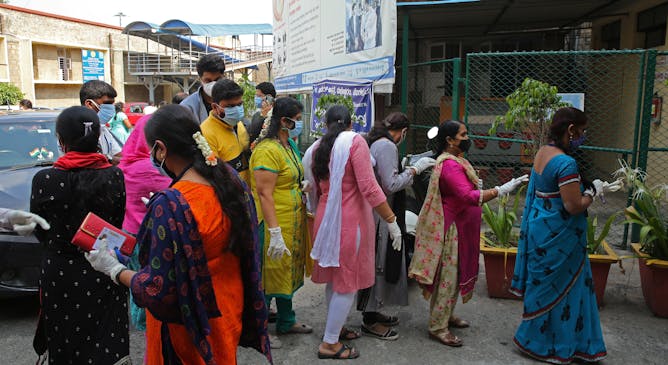
Jagadeesh NV/AAP
R. Ramakumar, Tata Institute of Social Sciences
The Indian government has been keeping an eye out for India's vaccine producers by not approving any other vaccines, and by letting them charge what they want. It's the people who are suffering.
|
Health + Medicine
|
-
Nicholas Fancourt, Menzies School of Health Research; Olga Havnen, Indigenous Knowledge
Do we want to punish some of the most vulnerable young people in the community, or do we want to reduce re-offending? The Northern Territory's proposed youth justice reforms suggest the former.
-
Jennifer Juno, The Peter Doherty Institute for Infection and Immunity; Adam Wheatley, The University of Melbourne
Vaccination is likely to substantially reduce virus transmission by reducing the pool of people who become infected, and reducing virus levels in people who do get infected.
-
Natasha Yates, Bond University
Many people are unsure if their condition qualifies as an underlying medical condition. They may not realise they're already eligible for the COVID vaccine.
-
Michael Plank, University of Canterbury; Andrew Chen, University of Auckland
The trans-Tasman travel bubble has come to a temporary regional halt three times now, highlighting the challenges in tracking the risk of an outbreak across jurisdictions with different systems.
|
|
Business + Economy
|
-
Alexandra Baxter, Flinders University
Child sexual abuse and child sex trafficking are serious problems. Misinformation is harming efforts to combat them.
|
|
Environment + Energy
|
-
Kingsley Dixon, Curtin University
New research found colour played a major role skewing researcher bias — pretty, vibrant flowers get more scientific attention than dull plants, regardless of their ecological significance.
|
|
Arts + Culture
|
-
Scott Davie, Australian National University
As a concert pianist, Scott Davie has been searching for the spirit of Chopin since his teens. It's taken him to Paris and Majorca and channeled tantalising notes through time.
-
Wesley Enoch, Queensland University of Technology
The 2021 Federal Budget should be used as an opportunity to invest in ideas: in arts, culture, universities, the ABC, and First Nations Australians.
|
|
Science + Technology
|
-
Paulo de Souza, Griffith University
The Tiangong space station is set to become a second long-term habitat for humans in orbit around Earth.
-
Cassandra Steer, Australian National University
Several spaceflights scheduled over the next few years will take non-astronauts to space. But it's not certain this privilege will ever extend to anyone beyond the extremely wealthy.
|
|
| |
Featured jobs
|

|
— Canberra ACT, Australia
|

|
— Townsville QLD, Australia
|

|
— Canberra ACT, Australia
|

|
— South Wharf VIC, Australia
|
|
|
|
| |
| |
| |
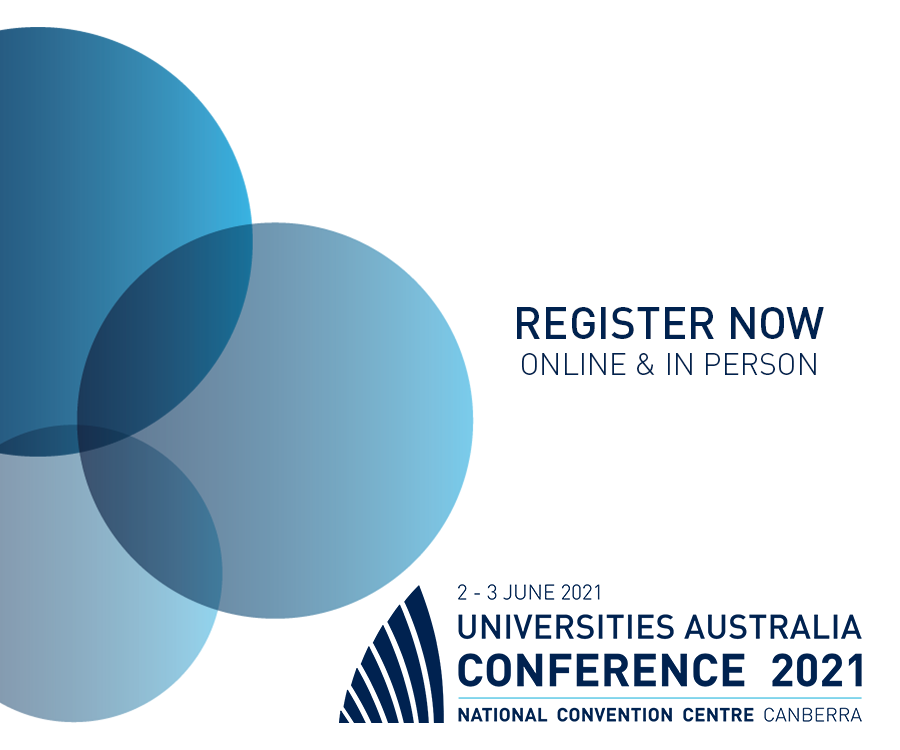
|
| |
| |
| |
Featured Events & Courses
|

|
Online, Melbourne, Victoria, 3145, Australia — Monash University
|

|
Online, Melbourne , Victoria, 3145, Australia — Monash University
|

|
Online, Free webinar, Victoria, 3067, Australia — Australia and New Zealand School of Government (ANZSOG)
|

|
The course is being run at UQ Brisbane City, 293 Queen St, Brisbane, Queensland, 4000, Australia — The University of Queensland
|
|
|
|
| |
| |
| |
| |
| |
|
|
|
|
|
|
|